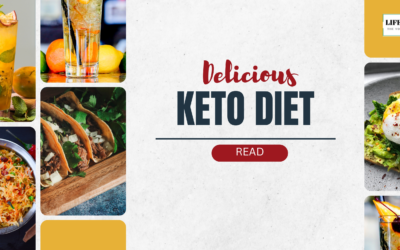It can be a difficult journey to lose weight, but it can also be a rewarding and sustainable one with the right approach. Sustainable weight loss is about changing your lifestyle, habits, and mindset to achieve and maintain a healthy weight. It’s about shedding pounds quickly and embracing a healthy lifestyle supporting your overall well-being. In this ultimate guide, I will provide valuable insights and practical tips to help you unlock your dream body through sustainable weight loss.
The Importance of Setting Realistic Goals
Setting realistic goals is a crucial step in achieving sustainable weight loss. A clear vision of what you want to do is essential, but realistic targets must also be established. Unrealistic goals can lead to frustration and disappointment, making it more difficult to stay motivated. Start by setting small, achievable goals and celebrate your progress along the way. Remember, sustainable weight loss is a journey, not a race.
The Role of Nutrition in Weight Loss
Nutrition plays a fundamental role in weight loss. It is important to focus on nourishing your body with healthy and balanced meals to achieve sustainable weight loss. Opt for whole foods rich in nutrients, such as fruits, vegetables, lean proteins, whole grains, and healthy fats. Avoid processed foods that are high in sugar, sodium, and unhealthy fats. Practice portion control and listen to your body’s hunger and fullness cues. Don’t deprive yourself of the foods you love; instead, find healthier alternatives and practice moderation.
Creating a Balanced and Healthy Meal Plan
Creating a balanced and healthy meal plan is key to sustainable weight loss. Start by planning your meals, ensuring that they are well-balanced and include a variety of nutrients. Incorporate a good balance of carbohydrates, proteins, and fats into each meal. Include plenty of fruits and vegetables to provide essential vitamins and minerals. Don’t forget to hydrate your body by drinking an adequate amount of water throughout the day. Meal planning can help you stay on track and avoid impulsive food choices.
Incorporating Exercise into Your Weight Loss Journey
Exercise is an important component of any weight loss journey. It not only helps burn calories but also improves overall fitness and well-being. Choose activities that you enjoy and that fit your lifestyle. Aim for at least 150 minutes of moderate-intensity aerobic activity or 75 minutes of vigorous-intensity aerobic activity per week. Additionally, incorporate strength training exercises to build lean muscle mass, boosting your metabolism and aiding in weight loss. Remember, consistency is key, so find ways to make exercise a regular part of your routine.
The Benefits of Strength Training for Weight Loss
Strength training is often overlooked when it comes to weight loss, but it offers many benefits. Building lean muscle mass through strength training can increase your metabolism, helping you burn more calories even at rest. It also helps improve your body composition, making you look more toned and defined. Incorporate strength training exercises into your workout routine at least two to three times a week. Focus on compound exercises that target multiple muscle groups, such as squats, deadlifts, and push-ups. Don’t be afraid to challenge yourself and increase the weight as you get stronger.
Mindset and Motivation for Sustainable Weight Loss
Building a positive mindset and staying motivated is crucial for sustainable weight loss. It’s important to shift your focus from just the number on the scale to overall health and well-being. Practice self-compassion and be kind to yourself throughout the journey. Surround yourself with a supportive network of friends and family who will encourage and motivate you. Set realistic expectations and celebrate even the smallest victories along the way. Remember, sustainable weight loss is not just about physical changes; it’s about transforming your mindset and embracing a healthy lifestyle.
Tracking Progress and Making Adjustments
Tracking your progress is essential to stay on track and make necessary adjustments. Keep a record of your weight, measurements, and body fat percentage. But remember, the scale is not the only measure of success. Pay attention to how your clothes fit, how you feel, and the increase in your energy levels. If you hit a plateau, don’t get discouraged. Instead, reassess your meal plan and exercise routine and make necessary adjustments. Consult a healthcare professional or a registered dietitian for guidance and support.
Overcoming Common Weight Loss Challenges
Weight loss journeys often come with challenges, but with the right mindset and strategies, you can overcome them. One common challenge is emotional eating. Learn to distinguish between emotional hunger and physical hunger and find alternative ways to cope with emotions. Another challenge is cravings for unhealthy foods. Practice mindful eating and find healthier alternatives to satisfy your cravings. Stay committed and motivated, especially when progress seems slow. Remember, sustainable weight loss takes time, and consistency is key.
Celebrating Your Success and Maintaining Your Progress
When you achieve your weight loss goals, it’s important to celebrate your success and maintain your progress. Reward yourself with non-food-related treats, such as a spa day or a new outfit. However, be mindful of moderation and don’t let celebrations derail your progress. Continue following a balanced and healthy meal plan, and make exercise a regular part of your routine. Surround yourself with a supportive community to stay accountable and motivated. Remember, sustainable weight loss is not just about reaching a certain number on the scale; it’s about embracing a healthy lifestyle for the long term.
Conclusion: Embracing a Sustainable Lifestyle for Long-Term Weight Loss
In conclusion, sustainable weight loss is not a quick fix; it’s a journey that requires commitment, patience, and a shift in mindset. You can unlock your dream body and maintain your progress by understanding the importance of setting realistic goals, nourishing your body with healthy foods, incorporating exercise and strength training, and staying motivated. Celebrate your success, overcome challenges, and embrace a sustainable lifestyle for long-term weight loss. Remember, you have the power to transform your body and live a healthier, happier life.
FAQs
Q: How long does it take to see results with sustainable weight loss?
A: The timeline for seeing results with sustainable weight loss varies from person to person. It’s important to remember that sustainable weight loss is a gradual process. Aim for a weight loss of 1-2 pounds per week, which is considered healthy and sustainable. Be patient, stay consistent, and focus on long-term results rather than quick fixes.
Q: Can I still enjoy my favorite foods while losing weight?
A: Yes, you can still enjoy your favorite foods while losing weight. The key is moderation and finding healthier alternatives. Incorporate your favorite foods into your meal plan occasionally, but practice portion control and balance it with nutritious meals. Remember, sustainable weight loss is about making long-term changes to your lifestyle, not deprivation.
Q: How do I stay motivated throughout my weight loss journey?
A: Staying motivated can be challenging, but there are strategies you can use to stay on track. Set realistic goals, celebrate small victories, and surround yourself with a supportive community. Find activities you enjoy and make exercise a regular part of your routine. Practice self-care and be kind to yourself throughout the journey. Remember, sustainable weight loss is a marathon, not a sprint.
Q: What should I do if I hit a weight loss plateau?
A: Hitting a weight loss plateau is common and can be frustrating. If you hit a plateau, reassess your meal plan and exercise routine. Make sure you’re still creating a calorie deficit and consider making adjustments to your routine, such as increasing the intensity of your workouts or trying new forms of exercise. Consult a healthcare professional or a registered dietitian for personalized guidance and support.

Welcome to LifeSnipet! At LifeSnipet, we’re your ultimate source for the latest health updates. Specializing in health and fitness-related diseases, we delve deep into Ayurvedic techniques, providing you with a comprehensive understanding of well-being. Explore our real-time updates, detailed articles, and ancient Ayurvedic wisdom for a holistic approach to health. Embark on a journey to a healthier, vibrant life with LifeSnipet – where your well-being is our priority!











